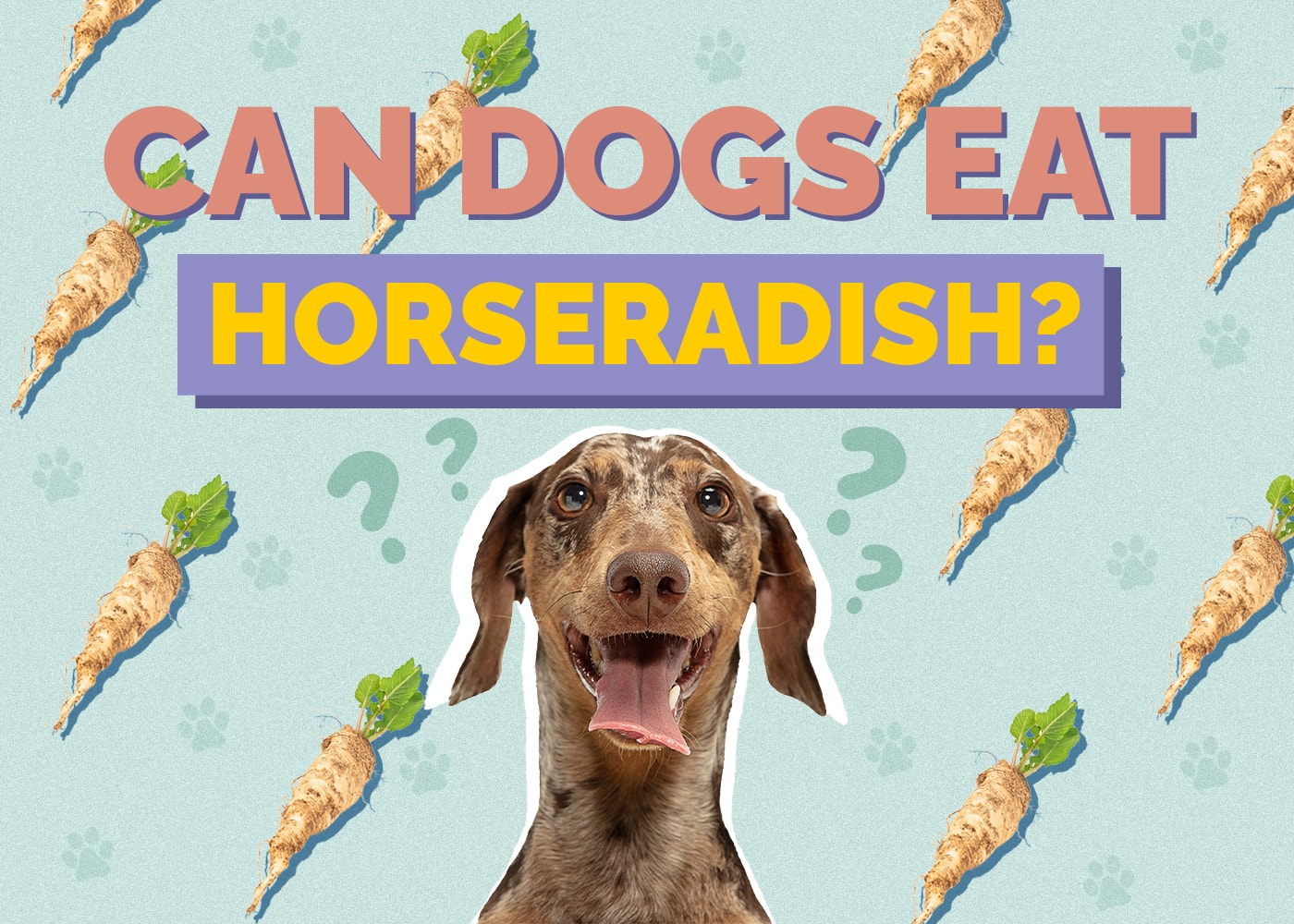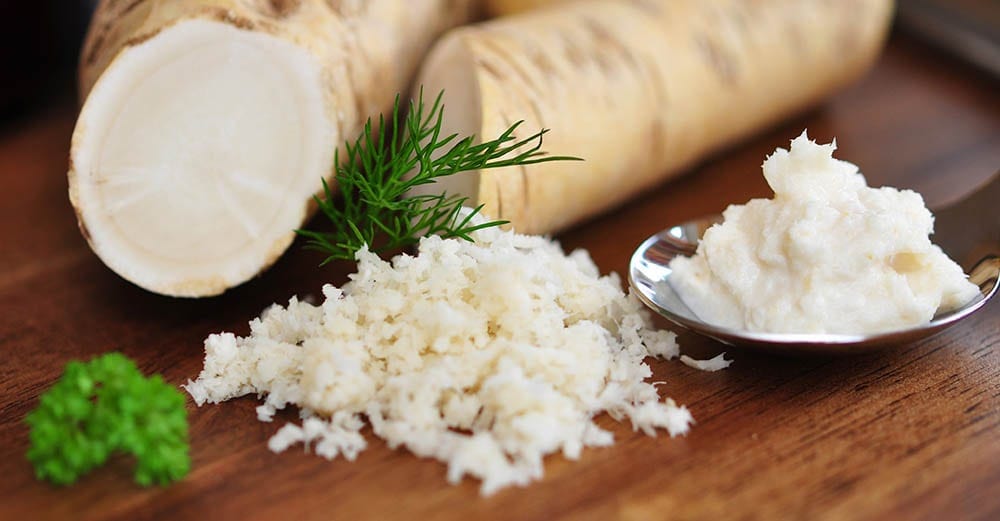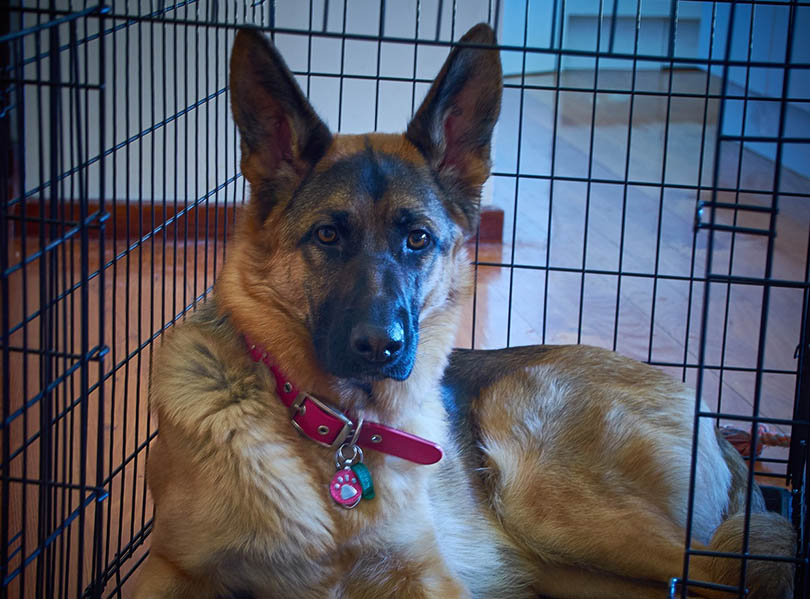Can Dogs Eat Horseradish? Vet-Reviewed Health Risks & FAQs
Updated on

There may be no condiment quite as polarizing as horseradish. It does have a bit of an acquired taste as it’s very spicy in a different way from other condiments. You’ll feel it all through your nose and sinuses instead of on your tongue as with hot sauce. Horseradish isn’t just a sauce, however. It’s a plant that’s even been used to help some medical ailments like urinary tract infections and gout. But is this powerful and polarizing sauce something you should offer your pup?
While the ASPCA doesn’t list horseradish as a toxic plant for dogs or cats, that doesn’t mean it’s something your dog should be eating. Read on to learn more.
What Is Horseradish?
Horseradish is a perennial plant and root vegetable. It belongs to the family Brassicaceae, which also includes mustard and wasabi. It’s used worldwide as a spice and a spicy condiment. Horseradish sauce, which is often used in North America as a sandwich spread, is made from grated horseradish with mayonnaise or salad dressing.

Why Shouldn’t Dogs Eat Horseradish?
Horseradish is known for its pungency, which is actually a defense mechanism the plant has developed against herbivores. The defensive poison and the reason horseradish is so pungent is due to the chemical isothiocyanate. When a dog chews the leaves or roots of the plant, the cells inside the plant burst and release the glucosinolate sinigrin and the enzyme myrosinase.
Myrosinase works as a catalyst, hydrolyzing sinigrin into isothiocyanate. This is one of the worst chemicals a chemist has to work with, as it smells awful and irritates the lungs and eyes. If that’s too complicated, think of it this way. The chemicals and enzymes in horseradish work together to set off a “grenade” in the mouth of whatever eats it.
When your dog ingests isothiocyanate, he can experience mild to severe gastric irritation. The chemical can also irritate your pup’s mouth, nose, and throat. Some dogs may react more strongly to isothiocyanate than others, so monitoring your pup for any reactions if he’s been in your horseradish plant or stole a taste of your horseradish sauce is important.
What Should I Do If My Dog Ate Horseradish?
If you dropped a dollop of horseradish on the floor and your pup lapped it up before you had a chance to react, there are chances of getting stomach upset. As mentioned, this root vegetable is considered nontoxic, but you should watch for any signs of gastrointestinal upset, like diarrhea or an allergic reaction.
Allergic reactions are very uncommon, if they do occur it will be shortly after consumption and will include signs like:
- Diarrhea
- Vomiting
- Hives
- Facial swelling (ears, lips, eyelids)
- Lip swelling
- Sneezing
- Difficulty breathing
If your pup exhibits these symptoms, contact your vet as soon as possible.
Final Thoughts
While horseradish is technically non-toxic for dogs, it shouldn’t be something you willingly offer your pup. The plant’s chemical composition gives it a pretty harsh defense mechanism against predators, which may cause digestive upset and irritation of the mouth, nose, and throat. If your pup happens to eat horseradish, it is unlikely he will experience any long-term consequences, but monitor him for signs of gastrointestinal upset or an allergic reaction.












